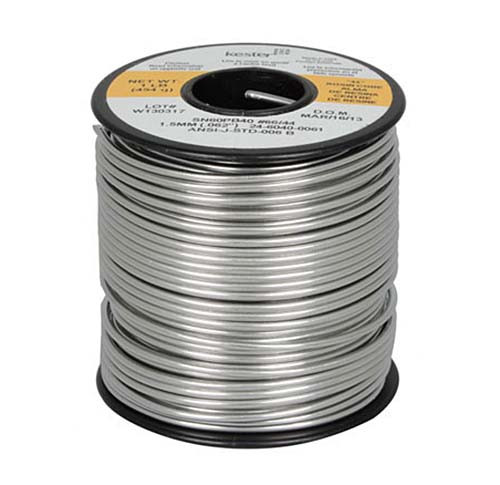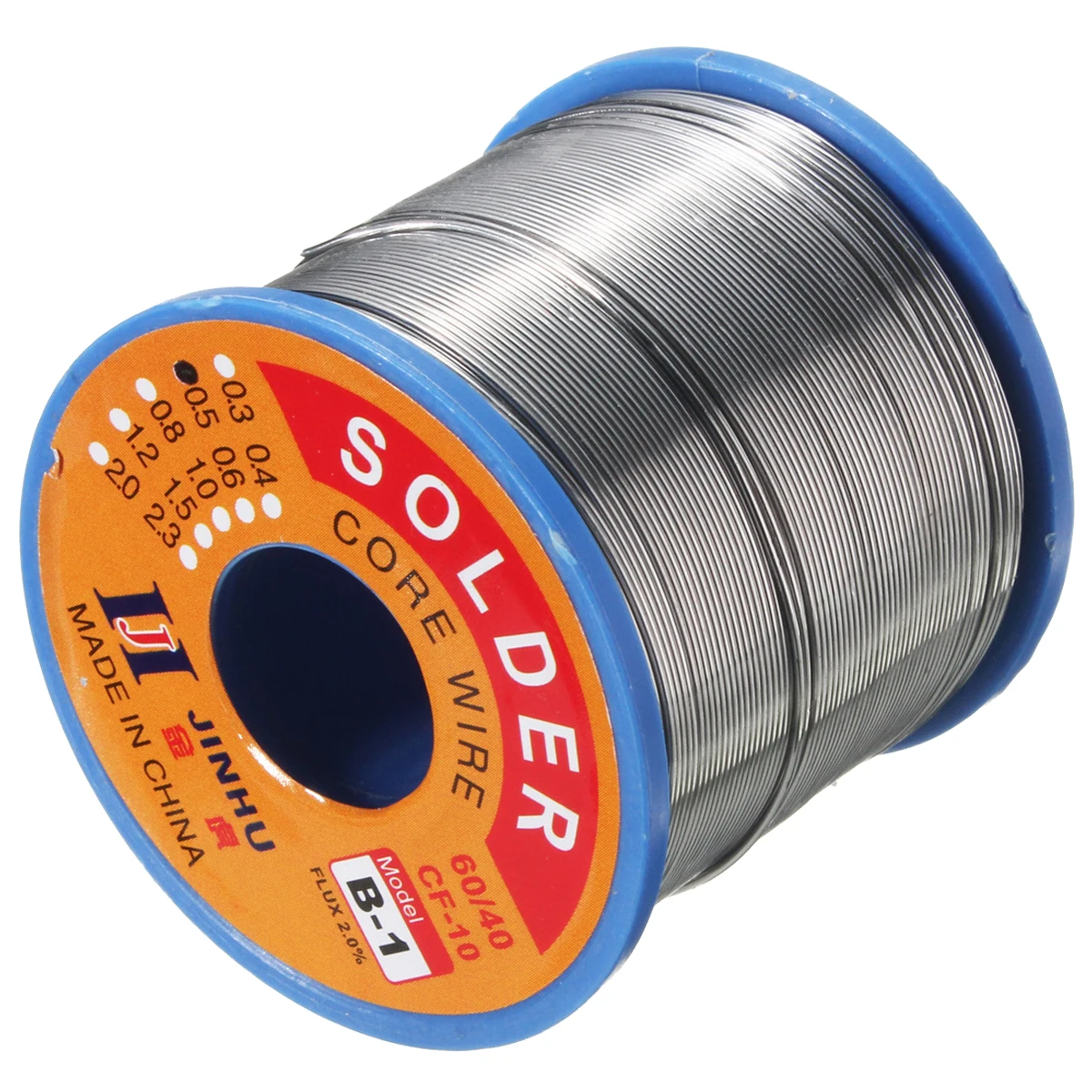

Do not use this product in plumbing or for potable water applications.Not recommended in high stress or vibration joints in the cooling industry due to lack of sufficient elongation properties Leaded Solder, Contents 40 Percent Lead, 60 Percent Tin, Rosin Core, Wire Dia.0.125 in, Melting Range (Deg.) 445 to 500, Container Size.Heat sources include soldering guns, irons and air-fuel torches.Popular choice for soldering electrical and electronic connections I have used this type of solder on many electronic projects and on many electronic repairs for approximately 40 years.Mini Solder spool - 60/40 lead rosin-core solder 0.031' diameter. Its narrow melting range makes it suitable for dip soldering baths If you are using a temperature controlled iron, set it to 700F/370C for 60/40 or 750F/400C for lead-free solder.Can be used to solder copper and most copper alloys, lead, nickel alloys, and steel with some exceptions.TOWOT Tin Lead Rosin Core Solder Wire for Electrical Soldering, Content 1.8 Solder Flux Sn60-Pd40 (0.8mm, 50g) 2,418. 60/40 is available in acid core, rosin core and solid wire versions. MAIYUM 63-37 Tin Lead Rosin Core Solder Wire for Electrical Soldering (0.8mm 50g) 17,271. It is not recommended for joints subject to high stress or vibration in the cooling industry due to lack of sufficient elongation properties. Rosin Core 60/40 Solder The Forney 38073 rosin core solder is 1/16 The Forney 38073 rosin core solder is 1/16 in. The rosin core solder is ideal for low temperature electronics soldering with a 430 degree Fahrenheit melting point. This solder can, with some exceptions, be used to join copper and most copper alloys, lead, nickel alloys and steel. Make clean solder joints with this rosin core solder, packed in a poly tube dispenser. The rosin core solder wire is designed for electrical. It is similar to 50/50 but flows faster due to its narrow melting range. Rosin Core Solder (60 Tin/40 Lead/1.7 Flux) ideal for low temperature electronics soldering. Specialty Gas, Manifolds & Medical AccessoriesĦ0/40 common lead-bearing solder has a wide melting range.The melting point of electrical solder is 188c, in the case of 60/40. Hence on a trumpet, all the joins between components are made with soft solder, enabling the instrument to be disassembled and reassembled for repair purposes.


It is designed to create joins that are durable but can be taken apart again by applying heat. MG Chemicals 4875-454G is 0.8mm tin lead solder wire with a no clean rosin flux core. Traditional 60/40 is one of the 'soft solders'. Wire solder containing rosin flux core 40/60 alloy made of 40 tin and 60 lead Made for electrical applications, including wiring and other fine electronic. Even the lower temperature formulations need to be heated to about 650c (1202F!), which hot enough to fry a PCB and every electronic component I can think of. As a result, it can be machined and polished, creating near-invisible results when used on silver or nickel silver. Although the term covers more than one possible formulation, it is generally considered a 'hard solder' in as much as it is as durable as the materials it holds together.

Heat sources include soldering guns, irons and torch applications. Rosin core solders are generally used for small connections as there is a limited amount of flux available for protecting large surface areas. Its also known as 40EN alloy which is used for Hand soldering radio, telephone and electrical equipment, batteries. I don't know whether 'silver solder' has a different meaning either side of the Atlantic, but I used silver solder when making components for brass(wind) musical instruments. 60/40 tin-lead rosin core solder is a popular choice for soldering for electrical and electronic connections.


 0 kommentar(er)
0 kommentar(er)
